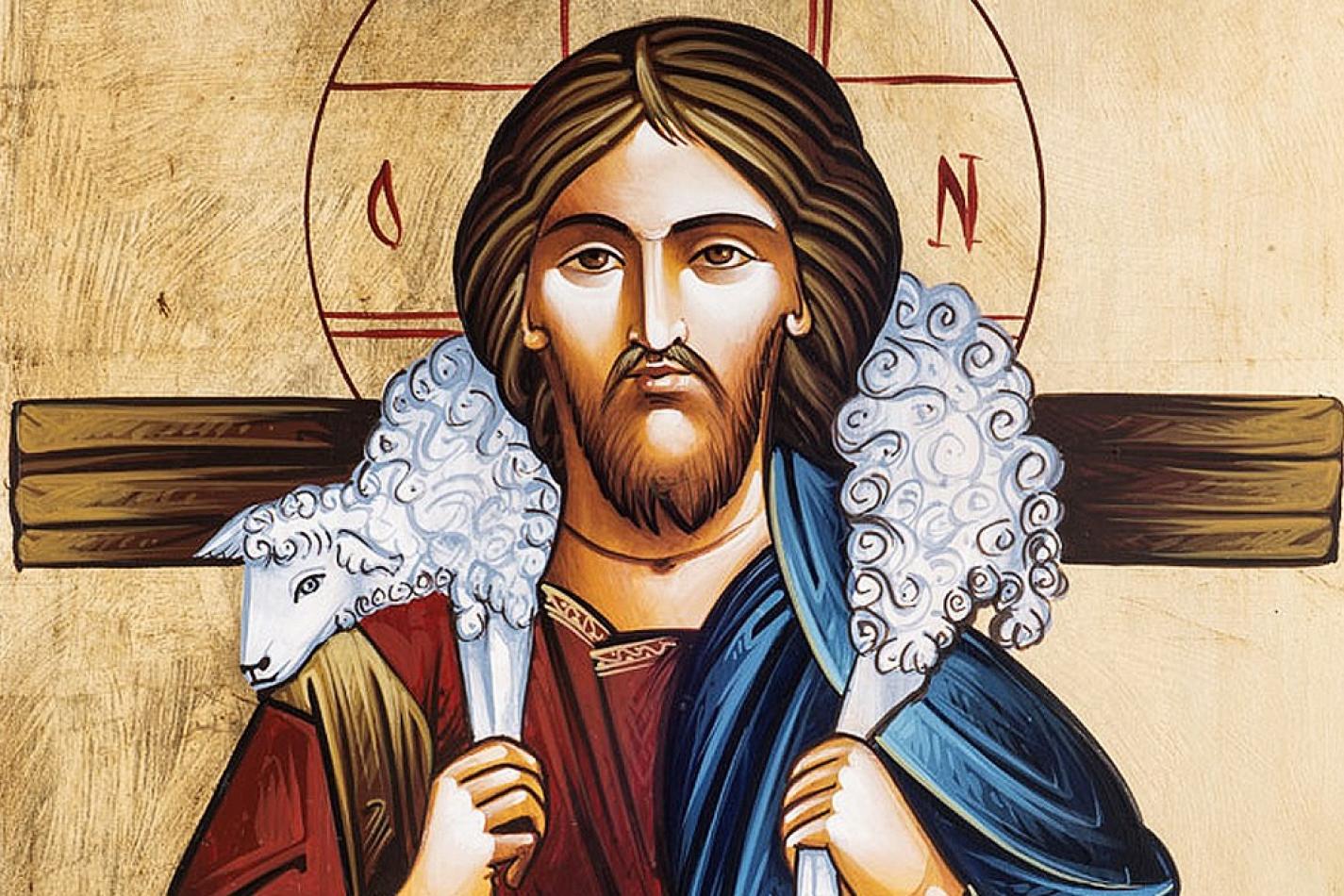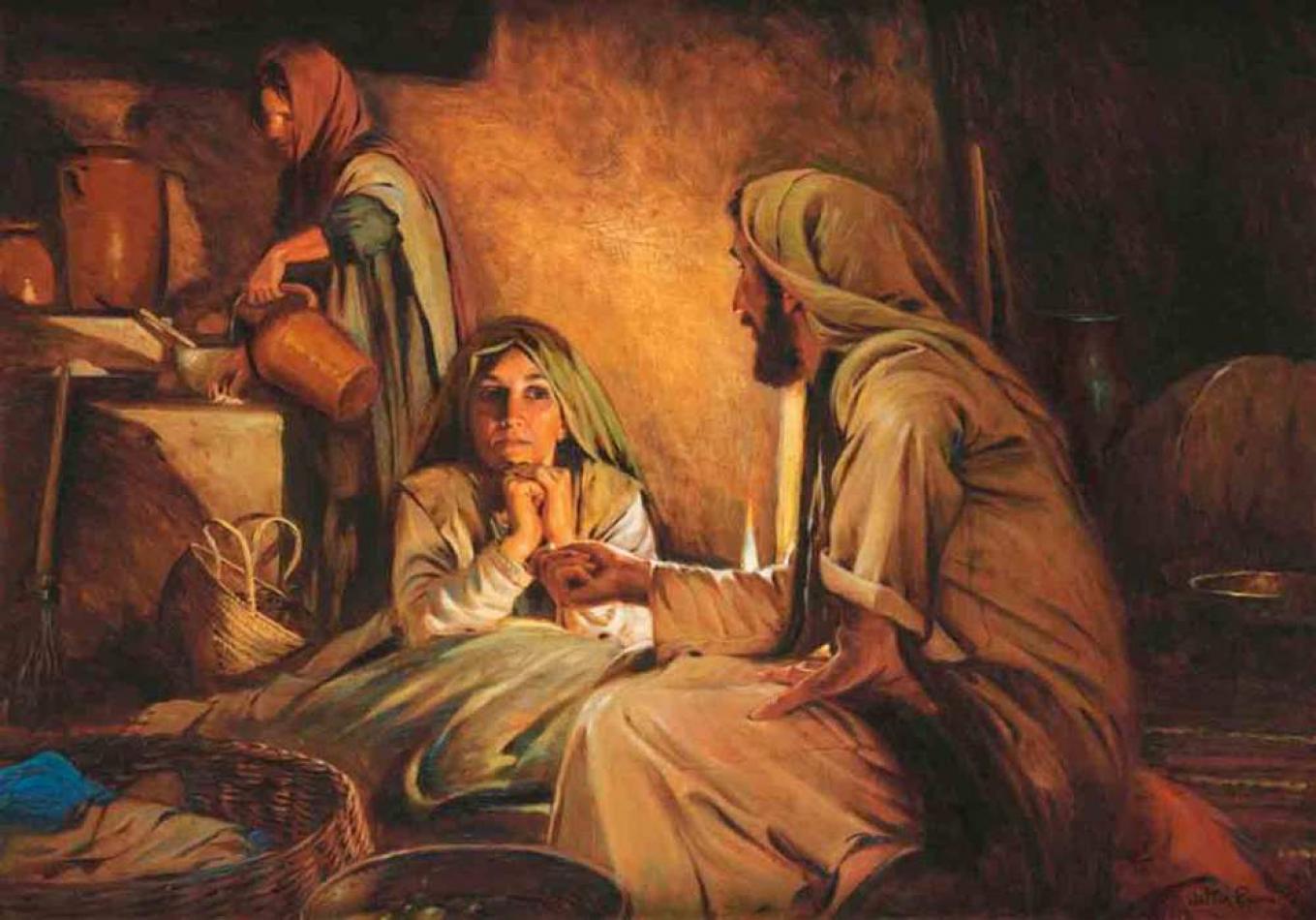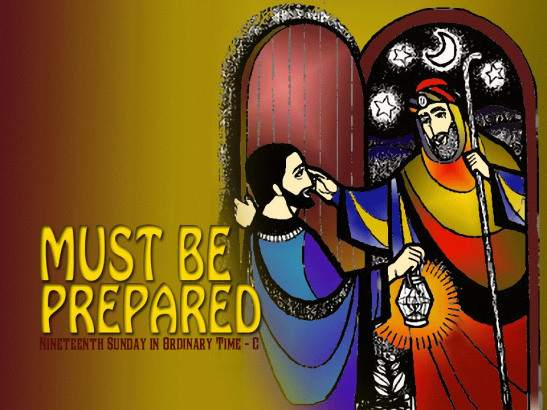Daniel Comboni
Comboni Missionaries
Institutional area
Other links
Newsletter
This Sunday’s Gospel (Lk 12:32-48) speaks to us about the desire for the definitive encounter with Christ, a desire that keeps us ever ready, alert in spirit, for we anticipate this encounter with all our heart, with all our being. This is a fundamental aspect of life. It is a desire that we all share, whether explicit or secret, we have hidden in our heart; we all harbour this desire in our heart. [...]
Luke 12:32-48
A heart full of desire
Pope Francis
This Sunday’s Gospel (Lk 12:32-48) speaks to us about the desire for the definitive encounter with Christ, a desire that keeps us ever ready, alert in spirit, for we anticipate this encounter with all our heart, with all our being. This is a fundamental aspect of life. It is a desire that we all share, whether explicit or secret, we have hidden in our heart; we all harbour this desire in our heart.
It is also important to see Jesus’ teaching in the actual context in which he transmitted it. In this case, Luke the Evangelist shows us Jesus walking with his disciples to Jerusalem, walking to his death and resurrection at Easter, and on this journey he teaches them, confiding to them what he himself carries in his heart, the deep attitude of his heart: detachment from earthly possessions, his trust in the Father’s Providence and, indeed, his innermost watchfulness, all the while working for the Kingdom of God. For Jesus it is waiting for his return to the Father’s house. For us it is waiting for Christ himself who will come to take us to the everlasting celebration, as he did for his Mother, Mary Most Holy; he took her up to Heaven with him.
The Gospel intends to tell us that the Christian is someone who has a great desire, a deep desire within him: to meet his Lord with his brothers and sisters, his travelling companions. And what Jesus tells us is summed up in his famous phrase: “For where your treasure is, there will your heart be also” (Lk 12:34). A heart full of desire. We all have desires. The poor ones are those who have no desire, no desire to go forward, toward the horizon; and for us Christians this horizon is the encounter with Jesus, the very encounter with him, who is our life, our joy, our happiness.
I would like to ask you two questions. First: do you all have a desiring heart? A heart that desires? Think about it and respond silently in your hearts. I ask you is your heart filled with desire, or is it a closed heart, a sleeping heart, a heart numb to the things of life? The desire to go forward to encounter Jesus.
The second question: where is your treasure, what are you longing for? Jesus told us: where your treasure is, there will be your heart — and I ask you: where is your treasure? What is the most important reality for you, the most precious reality, the one that attracts your heart like a magnet? What attracts your heart? May I say that it is God’s love? Do you wish to do good to others, to live for the Lord and for your brothers and sisters? May I say this? Each one answer in his own heart.
But someone could tell me: Father, I am someone who works, who has a family, for me the most important reality is to keep my family and work going…. Certainly, this is true, it is important. But what is the power that unites the family? It is indeed love, and the One who sows love in our hearts is God, God’s love, it is precisely God’s love that gives meaning to our small daily tasks and helps us face the great trials. This is the true treasure of humankind: going forward in life with love, with that love which the Lord has sown in our hearts, with God’s love. This is the true treasure.
But what is God’s love? It is not something vague, some generic feeling. God’s love has a name and a face: Jesus Christ, Jesus. Love for God is made manifest in Jesus. For we cannot love air…. Do we love air? Do we love all things? No, no we cannot, we love people and the person we love is Jesus, the gift of the Father among us. It is a love that gives value and beauty to everything else; a love that gives strength to the family, to work, to study, to friendship, to art, to all human activity. It even gives meaning to negative experiences, because this love allows us to move beyond these experiences, to go beyond them, not to remain prisoners of evil, it moves us beyond, always opening us to hope, that’s it! Love of God in Jesus always opens us to hope, to that horizon of hope, to the final horizon of our pilgrimage. In this way our labours and failures find meaning. Even our sin finds meaning in the love of God because this love of God in Jesus Christ always forgives us. He loves us so much that he always forgives us.
Gospel reflection – Luke 12,32-48
Fernando Armellini
Introduction
How much waiting for a feast! Months of work to prepare for a fleeting day of enjoyment, which more often than not disappoints the expectations and leaves behind sad and melancholy faces. It also happens in life: much efforts are done to prepare for a future that then proves to be an unattainable mirage. The foolish farmer in last Sunday’s parable is an example. He has committed, was lucky, but in the end, he saw the fruits of his labor getting out of hand. So much hard work for nothing!
The goods offer a sense of security; they promise to satisfy every need and every desire, from which the psychological mechanism that leads to the accumulation and idolatry is triggered. Riches give an impression of being solid, unwavering, enduring: they survive those who have them. Actually, they deceive him, deprive him of everything, and leave him empty-handed.
The wise Ecclesiastes warned: “Whoever loves money will not be satisfied with money. Whoever loves wealth hasn’t sufficient income. This is senseless. When there is abundance of good things there is abundance of consumers. What profit is there for the owner except to look on” (Ecl 5:9-10). How to avoid being in this situation at the end of one’s own life?
Jesus repeats his disconcerting proposal several times: Sell everything, give the proceeds to the poor. How to interpret these words? Is he aware that he is asking us to give up what is the joy of our heart? Does he come to undermine all our safety?
Yes, and he does to make us blessed.
Gospel: Luke 12:32-48
The passage begins with the exhortation: “Do not be afraid, little flock, for it has pleased your Father to give you the Kingdom” (v. 32). The disciples are afraid: they know they are few and weak in the face of a hostile world. They get scared because evil is strong; it triumphs everywhere; it seems overwhelming and they feel fragile and unable to resist. The Kingdom of God—Jesus assures—will come because it is not the work of man; it is the Father’s gift.
Then the theme goes alive. From last Sunday’s Gospel one can deduce that the foolish farmer had committed two stupid mistakes: he had not enriched himself before God and let himself be surprisingly caught by death.
What should he have done? How does he enrich himself before God? Simple—Jesus answers today—you “sell what you have and give alms” … (vv. 33-34).
The rich who accumulated great wealth had to leave them in this world. He did not find the way to bring them with him. Plagued by the concerns of this world—the fields, the crops, the storage—he did not have time to listen to that Word that would have revealed the secret for not losing his capital, to “transfer them to heaven.” Here’s what a wise man of the Old Testament would have suggested to him: “Give alms from what you have … . Do not turn away your face from anyone who is poor. Give alms in proportion to the amount you have; if you have little, do not be afraid to give alms according to the little you have. In this way, you are storing up treasure against the day of tribulation because almsgiving frees us from death and keeps us from wandering in the darkness. Almsgiving is a precious treasure in the eyes of God” (Tb 4:7-11; cf. Sir 3:29–4:10; 29:8-13).
The reflections of Jesus are in tune with the traditional teaching of the wise men of his people: who accumulates assets for himself—he says—sees them then eaten by moths or leaked from ragged bags and lost foolishly on the street. “Humans are mere shadows that go about relentlessly—remembers the Psalmist—being but a breath they toil and rake in wealth not knowing who will take it next” (Ps 39:7). Better, much better to give them in the hands of a safe “banker”—God—who, in times of need, will give it back with “lavish interests.” This image is well known in the time of Jesus. The son of the Queen of Adiabene—who converted to Judaism with his mother around 50 A.C.—responded thus to those who accused him of squandering his wealth by helping the needy of Israel: “My ancestors heaped treasure in this world, I instead will accumulate for the world to come.”
To the second question—how not to get caught by surprise? —Jesus responds with three parables.
The first (vv. 35-38): a gentleman went to a wedding party and left home his servants. These people know that the master will come back, but they do not know the time: he may come in the middle of the night or just before dawn, and they must be ready to welcome him. When and how the Lord returns, and what are these enigmatic images?
The answer that comes to mind is: one has to be prepared to welcome the Lord at the end of life. It is not exact. Vigilance is equivalent to the constant availability of service. The Christian does not have free moments in which he can withdraw into himself in the pursuit of self-interest, times in which he is not ready to help those who need his help.
Two images describe effectively the vigilant disciple: he dresses for action and keeps the lamp burning. He does not turn off the light, does not put on the front door the “do not disturb, I’m sleeping” sign. Anyone who needs him should know that he is always available.
He has his clothes always tucked in. In the East the men used long robes, at home they let it loose, but when they put themselves to work or leave for a trip they gird their hips and raised them to move freely. The disciple is therefore always on duty.
The parable ends with one of the most beautiful images of the whole Bible: blessed are those servants who, in return, the master will find watching. He will gird his clothes, will make them sit at table and wait on them. There’s an equally moving image in the book of Revelation: “He will be the God-with-them. He will wipe away every tear from their eyes” (Rev 21:3-4). It is the promise of bliss reserved for those who are part of the kingdom of God.
The second parable (vv. 39-40): the Lord is compared to a thief who breaks in suddenly. A unique image, never before used in Judaism, but had luck with the Christians. It was picked up by Paul: “You know that the Day of the Lord—he writes to the Thessalonians—will come like thief in the night” (1 Thes 5:2). Peter also used them: “The day of the Lord is to come like a thief; then the heavens will dissolve with a great noise” (2 Pet 3:10), and the author of Revelation (Rev 3:3; 16:15).
Strange image! It is a very unsympathetic God who waits the worst possible moment—the one where man is not prepared—to surprise him and sentence him to perdition.
The meaning of the parable is not this. It would no longer be “good news” a “Gospel,” it would only be a sterile threat. It is true that the Lord meets man at the end of life. That is certainly the most important of his comings and one needs to be prepared. However, if we observe well, death does not always behave like a thief. It typically announces its coming; it is preceded by very specific signs: old age, sickness, pain, decay.
The sudden coming of the Lord is another story. They are comings that take us by surprise like that of a thief. They are those in which he comes not to steal, but to save, to invite us to welcome the Kingdom of God.
The image of the thief has an undeniable intimidating tone. The aim is to warn of the danger of losing the opportunity for salvation that never arises again.
The third parable (vv. 41-48) is introduced as a response to Peter who asks the Lord who are those who need to stay vigilant. All—is the answer—but especially those who in the community have been tasked with a responsibility.
They are called “administrators,” not masters. They have in their hands the goods that do not belong to them and of which they must render account. Their ministry can be done in two ways. They may act as the faithful and wise servant who “distributes in time to all the servants their allowance of food” (v. 42). They undertake that in generous service in favor of the brothers and sisters of the community.
But they can also act for shameful gain and make themselves masters of the people entrusted to them (1 Pt 5:2-3).
Luke describes the behavior of unfaithful servants with stark realism: he speaks of idle people, who squander in revelry and carousing, using arrogant tones and behaving like despots. He clearly presents embarrassing situations, less exemplary concrete cases of some leaders of his community. He wants to remind them—with the stern words of the Master—to a greater sense of responsibility.
They are running the danger of and finding themselves excluded “cut off” from the group of disciples and placed among the infidels (v. 46). They are the prominent members of the Church, yet on them hangs a dramatic and unexpected judgment: God considers them failures. They are not—of course—condemned to hell. However, it will be tragic for them to have to admit when they can no longer remedy them, that they used the gifts of God in the worst way.
The image of the beatings which concludes the passage reflects a social context in which they often resorted to harsh punishment and even cruel to those who did not do their duty. The Lord does not punish anyone. The image underlines how despicable is the behavior of these leaders of the community. They are in the privileged position of those who knew the Lord’s will better than the others and are equally unfaithful. Their responsibility is greater.
Fernando Armellini
Italian missionary and biblical scholar
https://sundaycommentaries.wordpress.com





